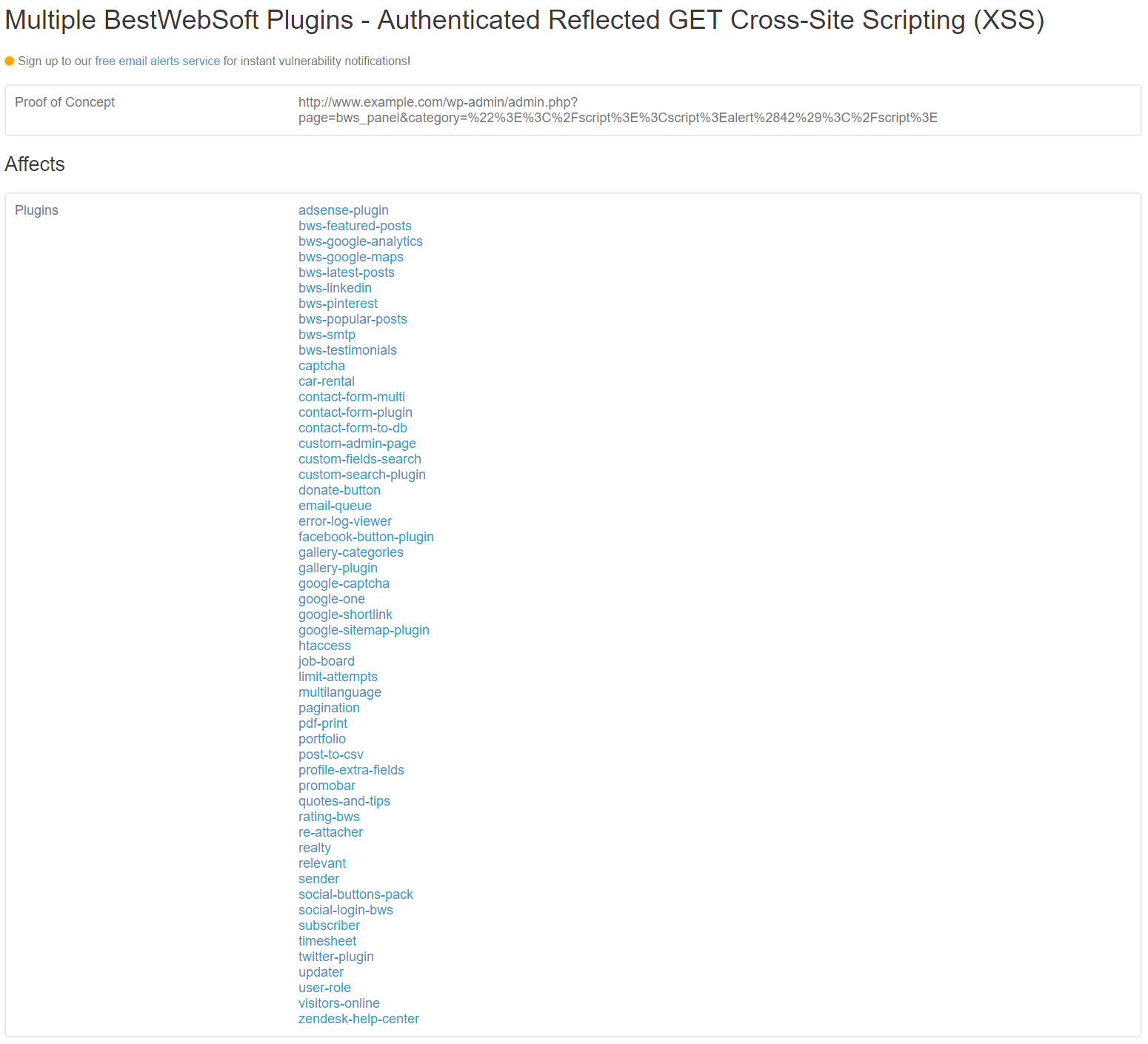WPScan Vulnerability Database Incorrectly Identifying Some BestWebSoft Plugins as Being Vulnerable
Earlier today we disclosed a reflected cross-site scripting (XSS) vulnerability we had found in numerous plugins by BestWebSoft after another security company that had independently found the same vulnerability disclosed it (the developer of the plugins was aware of it before either of us, but hadn’t fixed it in most of their plugins).
If we hadn’t already known about the vulnerability and prepared the data on the vulnerable plugins we would have had a lot of work to do today as the vulnerability impacts 53 plugins. The most time consuming part of preparing that data is determining what versions are vulnerable, but doing that insures that our customers are only notified if they are using a vulnerable version. While this vulnerability is unlikely to be exploited, for vulnerabilities that are likely to exploited determining the vulnerable versions is also important for those using the data while cleaning up a hacked website as it is possible that a website might be using a version that is older than the version identified as being vulnerable but is not vulnerable due to vulnerabilities not always existing in all older version (in a couple of cases last year vulnerabilities being exploited on a wide scale only existed in a single version of the plugins).
For those relying on another service or plugin to warn them of vulnerabilities in WordPress plugins they use, the underlying source of the data is likely from the WPScan Vulnerability Database and for those people they are likely to fair number of them being warned that they are using a vulnerable version of one of BestWebSoft’s plugins when they are not. The cause of that is that according to WPScan’s data none of the plugins have been fixed despite the fact that 13 of them have been fixed and were fixed before the disclosure. Take for instance the most popular fixed plugin, Google Sitemap by BestWebSoft, which has 90,000+ active installs according to wordpress.org. The vulnerability was fixed in that plugin two weeks ago.
Here is how it would look if WPScan’s data indicates a vulnerability was fixed:
And here is how their listing for this vulnerability currently looks:
Here is how it looks for an end user using one of the plugin’s that uses their data if they have the current version of Google Sitemap by BestWebSoft installed, despite it not being vulnerable:
The Downsides of Using WPScan’s Data
While we think that WPScan’s data is a good option for a lot of people because it is available for free, it does come with significant downsides that anyone using should know about. This also includes odd omissions of vulnerabilities, listing false vulnerabilities in their data and listing vulnerabilities that haven’t been fixed as being fixed. Not only are we not aware of anyone using their data including notice of those issues, but some plugins and services that use the data don’t disclose is as the source of their data so even if someone was aware of the issues with their data, they wouldn’t know it impacts them. Also problematic are services that actually charge for access to the data, because if you are paying for WordPress plugin vulnerability data then you should be getting better quality data than this.


